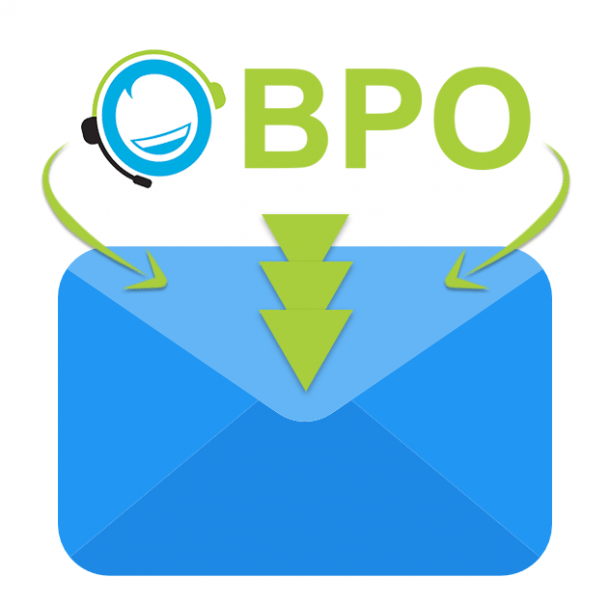In today’s highly competitive healthcare industry, maximizing return on investment (ROI) is essential for organizations to thrive and succeed. One effective strategy that can significantly contribute to achieving this goal is outsourcing certain business processes to healthcare business process outsourcing (BPO) providers. By leveraging the expertise and resources of BPO companies, healthcare organizations can streamline operations, enhance efficiency, and ultimately improve their ROI. This article explores the tips and strategies for maximizing ROI with healthcare BPO.
In the healthcare industry, cost control, operational efficiency, and high-quality patient care are of utmost importance. Outsourcing healthcare offers a viable solution to achieve these objectives by outsourcing non-core business functions to specialized service providers. This allows healthcare organizations to focus on their core competencies while benefiting from the expertise and cost savings offered by BPO partnerships.
Understanding Healthcare BPO
Healthcare BPO involves delegating specific administrative, financial, or customer service tasks to third-party service providers. These tasks may include medical coding, billing and collections, claims processing, revenue cycle management, patient support services, and more. By outsourcing these functions, healthcare organizations can optimize resource allocation, reduce operational costs, and improve overall efficiency.
Identifying Key Areas for Outsourcing
Before embarking on a BPO initiative, it is crucial to identify the areas that can yield the highest return on investment. This can include labor-intensive processes, repetitive tasks, or functions that require specialized knowledge and technology. By focusing on these areas, healthcare organizations can maximize the benefits of outsourcing and achieve significant cost savings.
Selecting a Reliable Healthcare BPO Partner
Choosing the right BPO partner is vital for a successful outsourcing engagement. Organizations should evaluate potential partners based on their industry experience, expertise, track record, and ability to deliver desired outcomes. Conducting thorough due diligence and requesting references from existing clients can help ensure the selection of a reliable and capable BPO provider.
Establishing Clear Communication Channels
Effective communication is essential for seamless collaboration between healthcare organizations and their BPO partners. Establishing clear communication channels, such as regular meetings, shared project management tools, and designated points of contact, fosters transparency, minimizes misunderstandings, and promotes a productive working relationship.
Ensuring Compliance and Data Security
Given the sensitive nature of healthcare data, ensuring compliance with industry regulations and maintaining data security is paramount. Healthcare organizations must work closely with their BPO partners to establish robust data protection measures, including secure data transmission, encrypted storage, access controls, and adherence to HIPAA regulations.
Implementing Process Standardization
To optimize efficiency and minimize errors, healthcare organizations should strive for process standardization before outsourcing. This involves documenting and streamlining existing workflows, eliminating redundancies, and establishing clear standard operating procedures (SOPs) that can be effectively communicated to the BPO partner. Standardized processes facilitate smooth knowledge transfer and enable seamless integration between the organization and the BPO provider.
Leveraging Technology and Automation
Automation and technology play a crucial role in enhancing the ROI of healthcare BPO. By leveraging advanced software solutions, artificial intelligence (AI), and robotic process automation (RPA), organizations can automate repetitive tasks, improve accuracy, and accelerate turnaround times. This not only reduces costs but also allows staff to focus on more complex and value-added activities.
Healthcare BPO Partner: Regular Performance Monitoring and Evaluation
To ensure that the BPO partnership delivers the desired ROI, regular performance monitoring and evaluation are essential. Key performance indicators (KPIs) should be established, and periodic reviews should be conducted to assess the BPO provider’s performance against these metrics. This ongoing monitoring allows for timely course corrections and ensures alignment with organizational goals.
Continuous Process Improvement
Achieving optimal ROI with healthcare BPO requires a commitment to continuous process improvement. Organizations should encourage feedback from their BPO partners and leverage their insights to identify areas for refinement and innovation. By embracing a culture of continuous improvement, healthcare organizations can drive efficiency gains and maximize the value derived from BPO engagement.
Training and Development for Staff
Organizations should invest in training and development programs for their staff. This ensures that employees are equipped with the necessary skills and knowledge to collaborate effectively with the BPO partner. Training can also help employees adapt to new workflows, technologies, and organizational changes, fostering a positive work environment and enhancing overall productivity.
Measuring and Analyzing ROI
Measuring and analyzing ROI is crucial to determine the success and effectiveness of your BPO partner initiatives. Organizations should establish clear metrics to assess the financial impact, cost savings, process improvements, and patient satisfaction resulting from the outsourcing engagement. Regular analysis and reporting of these metrics enable organizations to make data-driven decisions and further optimize their BPO strategies.
Successful Healthcare BPO Implementations
A healthcare company were struggling with the increasing administrative burden of managing medical billing and claims processing. The existing in-house team is overwhelmed with paperwork, leading to delayed reimbursements, billing errors, and dissatisfied patients. The company recognizes the need to streamline its revenue cycle management processes to improve operational efficiency, maximize revenue, and enhance patient satisfaction.
They partnered with OBPO to address their revenue cycle management. We provided them with comprehensive solutions to optimize the billing and claims process.
The results were:
- Improved Cash Flow: The streamlined billing and claims process results in faster claim submissions, reduced denials, and accelerated payment cycles, leading to improved cash flow.
- Enhanced Revenue Generation: OBPO’s expertise in revenue cycle management helps identify revenue leakage, optimize coding practices, and implement efficient billing strategies, resulting in increased revenue.
- Reduced Administrative Burden: By outsourcing revenue cycle management to the OBPO, the company experiences a significant reduction in administrative workload, allowing its in-house staff to focus on core clinical and patient care activities.
- Enhanced Patient Satisfaction: Prompt and accurate claims processing, along with responsive support for billing inquiries, improves patient satisfaction levels. Patients experience smoother financial interactions and clearer communication regarding their medical bills.


